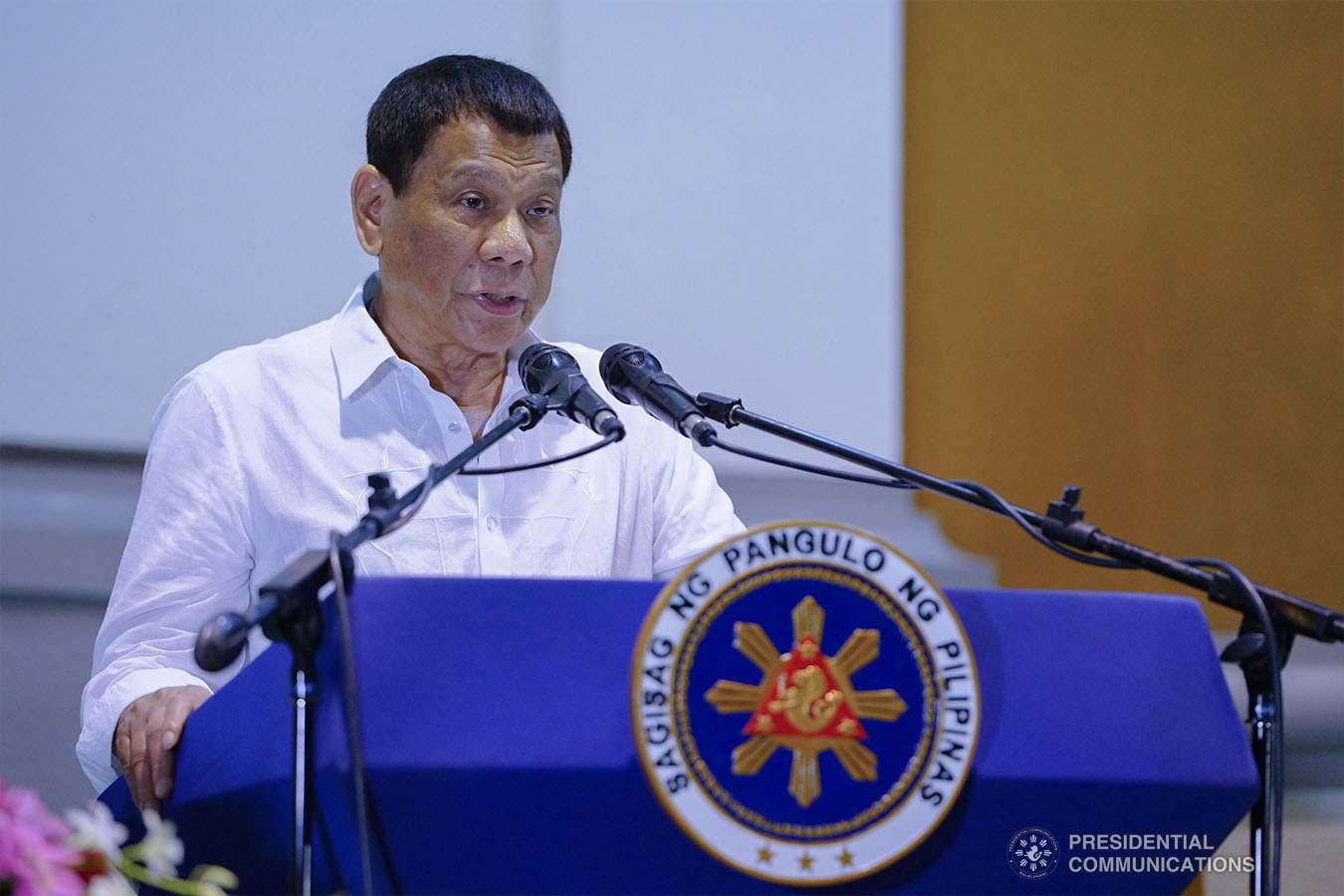News
PRRD won’t insist on federalism but still wants Cha-cha

FILE: President Rodrigo Roa Duterte delivers his speech following the oath-taking ceremony of his son, Vice Mayor Sebastian Duterte, at the Sangguniang Panlungsod in Davao City on June 21, 2019. JOEY DALUMPINES/PRESIDENTIAL PHOTO
MANILA — President Rodrigo Duterte on Tuesday afternoon said he will no longer insist on pushing for federalism to solve the over concentration of powers and resources in the national government.
Duterte, however, said that he would still prefer to make “changes” in the 1987 Constitution but did not elaborate what he meant.
“If you do not want federalism, fine,” Duterte said in his speech during the oath-taking of newly-elected senators and local officials endorsed by the Hugpong ng Pagbabago (HNP) in the recent mid-term polls.
“But change the Constitution that would really change this nation,” he added.
On January 18, Duterte said he did not necessarily want to change the entire charter but make a few economic provisions in the Constitution.
Malacañang, however, said that this did not mean that Duterte is abandoning his push for federalism.
But on June 10, senator-elect and former presidential aide Christopher “Bong” Go later bared that Duterte has accepted that a shift to a federal system of government may not happen within his term.
“Nagkausap rin po kami ni Pangulong Duterte tungkol sa federalism. Sabi niya mukhang mahihirapan po tayo sa ngayon (The President and I talked about federalism. He said it looks like we’ll have a difficult time passing it for now),” Go said in a press briefing in Casa Roces restaurant across Malacañang.
Go emphasized what should be prioritized for now is boosting the information dissemination campaign on federalism.
While the House of Representatives has already crafted its own draft federal constitution, the Senate has repeatedly said that federalism is not among its priorities.
As part of his efforts to push for federalism, Duterte formed a Consultative Committee (ConCom), a panel of experts to review the 1987 Constitution, which completed a proposed “Bayanihan” Federal Constitution in 2018.
Among the ConCom’s federal charter’s provisions include a ban on political dynasties and political turncoatism; a ban on monopolies and oligopolies that lessen competition; additional powers for the Ombudsman and Commission on Audit among others; the inclusion of socio-economic rights in the Bill of Rights; and the establishment of a permanent and indissoluble nation.
Also, under the draft charter, there are 18 federated regions composed of 16 symmetrical regions — existing regions plus Negrosanon Federated Region and two asymmetrical regions — Bangsamoro and Cordillera. Bangasamoro and Cordillera have different designs from other regions because of their “identity-based demands.”





















